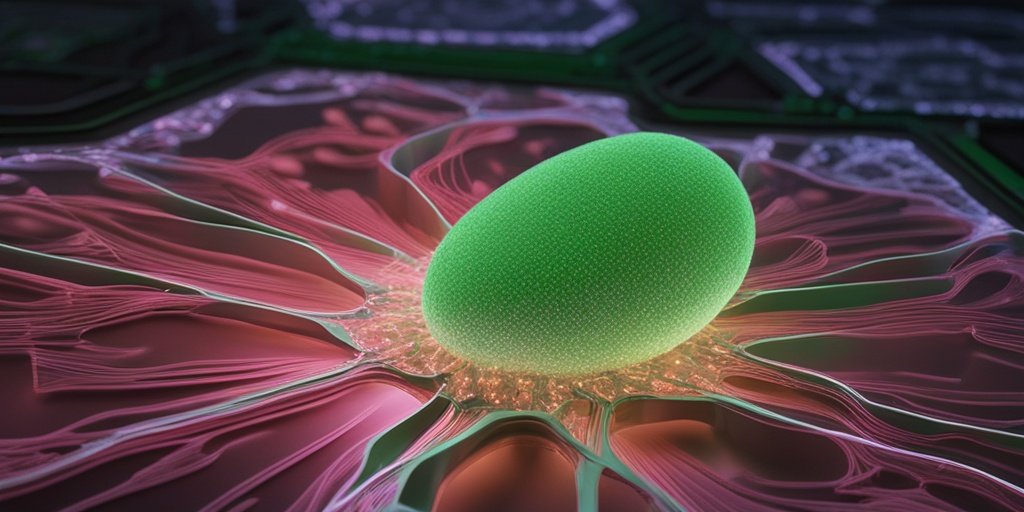⚡ Quick Summary
A recent study has developed a multimodal AI model that uncovers the heterogeneity of tumor microenvironment immunotyping in breast cancer, significantly enhancing risk stratification. This innovative approach integrates long noncoding RNAs (lncRNAs) and clinical data, paving the way for improved prognostic predictions and personalized immunotherapy strategies.
🔍 Key Details
- 📊 Dataset: 1,027 patients from Sun Yat-sen Memorial Hospital and The Cancer Genome Atlas
- 🧩 Features used: RNA sequencing, pathology whole-slide images, immune-cell scores
- ⚙️ Technology: AI-based models including DeepClinMed-IM and DeepClinMed-PGM
- 🏆 Performance: High predictive accuracy in identifying immune-metabolic subtypes
🔑 Key Takeaways
- 🔬 Study highlights the role of lncRNAs in breast cancer immunotherapy response.
- 🤖 AI models demonstrated high accuracy in predicting immune-metabolic subtypes.
- 📈 Four unique immune-metabolic subtypes were identified through unsupervised clustering.
- 🌟 DeepClinMed-PGM showed superior prognostic performance by integrating multiple data types.
- 💡 Findings emphasize the significant impact of lncRNAs on antitumor immunity.
- 🏥 Research conducted at Sun Yat-sen University, contributing to breast cancer treatment strategies.
- 🔍 Potential for personalized immunotherapy based on identified subtypes.

📚 Background
Breast cancer remains the leading cancer among women, with many patients facing the challenges of recurrence and metastasis. Traditional methods of risk stratification often fall short in accurately predicting patient outcomes. The integration of long noncoding RNAs (lncRNAs) into cancer research has opened new avenues for understanding tumor biology and improving treatment responses, particularly in the context of immunotherapy.
🗒️ Study
This study involved a comprehensive analysis of data from 1,027 breast cancer patients. Researchers utilized RNA sequencing and pathology whole-slide images to explore the role of lncRNAs in the tumor microenvironment. By employing unsupervised clustering techniques, distinct lncRNA expression patterns were identified, leading to the development of advanced AI models, including DeepClinMed-IM and DeepClinMed-PGM.
📈 Results
The study successfully identified four unique immune-metabolic subtypes, showcasing the potential of lncRNAs in influencing antitumor immunity and metabolic states. The AI-based pathology model, DeepClinMed-IM, exhibited remarkable predictive accuracy, while the multimodal model, DeepClinMed-PGM, demonstrated superior performance in prognostic predictions by integrating diverse data sources.
🌍 Impact and Implications
The findings from this study have significant implications for breast cancer research and treatment. By leveraging AI and multimodal data fusion, healthcare professionals can achieve more precise prognostication and identify potential candidates for immunotherapy. This advancement not only enhances our understanding of breast cancer heterogeneity but also paves the way for personalized treatment strategies that could improve patient outcomes.
🔮 Conclusion
This study underscores the transformative potential of AI in cancer research, particularly in the realm of breast cancer immunotherapy. The integration of lncRNA data with clinical and pathological information offers a robust framework for enhancing risk stratification and treatment personalization. As we continue to explore these innovative approaches, the future of breast cancer management looks promising, with the potential for improved patient care and outcomes.
💬 Your comments
What are your thoughts on the integration of AI in breast cancer research? We would love to hear your insights! 💬 Leave your comments below or connect with us on social media:
Multimodal data fusion AI model uncovers tumor microenvironment immunotyping heterogeneity and enhanced risk stratification of breast cancer.
Abstract
Breast cancer is the leading cancer among women, with a significant number experiencing recurrence and metastasis, thereby reducing survival rates. This study focuses on the role of long noncoding RNAs (lncRNAs) in breast cancer immunotherapy response. We conducted an analysis involving 1027 patients from Sun Yat-sen Memorial Hospital, Sun Yat-sen University, and The Cancer Genome Atlas, utilizing RNA sequencing and pathology whole-slide images. We employed unsupervised clustering to identify distinct lncRNA expression patterns and developed an AI-based pathology model using convolutional neural networks to predict immune-metabolic subtypes. Additionally, we created a multimodal model integrating lncRNA data, immune-cell scores, clinical information, and pathology images for prognostic prediction. Our findings revealed four unique immune-metabolic subtypes, and the AI model demonstrated high predictive accuracy, highlighting the significant impact of lncRNAs on antitumor immunity and metabolic states within the tumor microenvironment. The AI-based pathology model, DeepClinMed-IM, exhibited high accuracy in predicting these subtypes. Additionally, the multimodal model, DeepClinMed-PGM, integrating pathology images, lncRNA data, immune-cell scores, and clinical information, showed superior prognostic performance. In conclusion, these AI models provide a robust foundation for precise prognostication and the identification of potential candidates for immunotherapy, advancing breast cancer research and treatment strategies.
Author: [‘Yu Y’, ‘Cai G’, ‘Lin R’, ‘Wang Z’, ‘Chen Y’, ‘Tan Y’, ‘He Z’, ‘Sun Z’, ‘Ouyang W’, ‘Yao H’, ‘Zhang K’]
Journal: MedComm (2020)
Citation: Yu Y, et al. Multimodal data fusion AI model uncovers tumor microenvironment immunotyping heterogeneity and enhanced risk stratification of breast cancer. Multimodal data fusion AI model uncovers tumor microenvironment immunotyping heterogeneity and enhanced risk stratification of breast cancer. 2024; 5:e70023. doi: 10.1002/mco2.70023